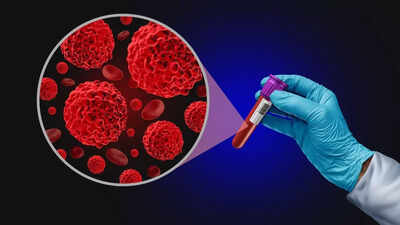A simple blood test has shown promise in accurately detecting colon cancer, the deadly disease growing exponentially among youth. The experimental blood test not only helps detect colon cancer effectively, but also can accurately rule it out among healthy people. The test is also quite convenient considering it’s less invasive compared to traditional methods like colonoscopies and stool-based tests, according to a study presented at the 2025 American Society of Clinical Oncology Gastrointestinal Cancers Symposium.
The test identified colon cancer with 81% accuracy in those diagnosed with the disease and correctly ruled it out in 90% of healthy individuals.
Researchers believe this breakthrough could significantly increase screening rates, particularly among those who avoid colonoscopies due to their invasive nature.The researchers in the background notes mention that about 22% of people eligible for colon cancer screening have never received it, and this percentage can go up to 40% in certain states.
Colonoscopy could be inconvenient as the patients have to undergo unpleasant bowel preparation and also be anesthetized during the procedure.
Stool tests are also used for screening colon cancer, but those must be done every year under current guidelines.

How the study was carried out
Researchers carried out the study on more than 40,000 people aged 45 to 85 at 200 sites across the US. First blood was drawn for the test, then standard colonoscopy was done. Researchers compared the results to find out the efficiency of the blood test.
“This blood test represents a new tool in our toolbox of colorectal cancer screening options,” Dr. Pamela Kunz, chief of GI medical oncology at the Yale School of Medicine, said in a news release.
The results show that such a blood test “may provide a convenient and effective option for colorectal cancer screening in the average-risk U.S. population,” said Kunz, who was not involved in the study.
Colon cancer usually affects older adults and begins in part of the large intestine called the colon. It is the first and longest part of the large intestine which is the last part of the digestive system. It is skyrocketing in people under 50. It usually begins as small clumps of cells called polyps that form inside the colon. Some of the polyps may turn into colon cancers over time.
(Picture courtesy: iStock)





